December 25, 2024 | 18:17 GMT +7
December 25, 2024 | 18:17 GMT +7
Hotline: 0913.378.918
December 25, 2024 | 18:17 GMT +7
Hotline: 0913.378.918
The 2024 Training Conference is designed to foster greater autonomy and innovation in training efforts, while focusing on the development of a skilled workforce that can effectively meet the needs of sustainable growth in both the agricultural sector and rural areas. In addition to this, the conference serves as a platform for institutions and organizations to exchange knowledge, share best practices, and learn from each other's experiences. By doing so, the event aims to continually improve the quality and credibility of training programs.
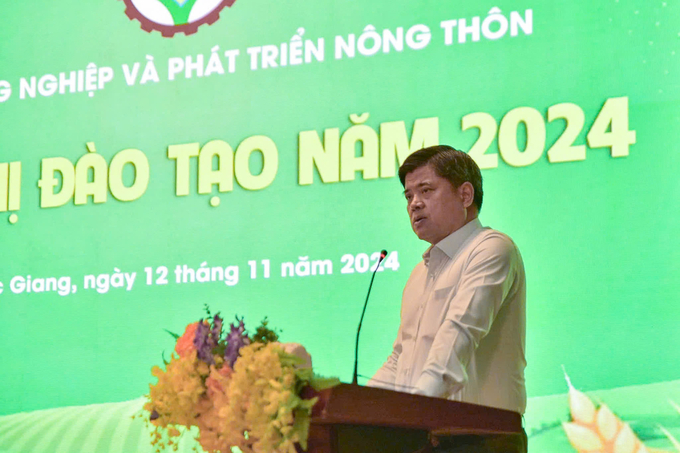
Deputy Minister Tran Thanh Nam emphasized that key personnel need to think creatively, explore new ideas, and proactively embrace innovation. Photo: Kieu Chi.
Prof. Dr. Le Bao Duong, the Rector of Bac Giang University of Agriculture and Forestry, shared that the university is currently offering graduate programs in four fields and undergraduate programs in 19 fields, all designed to meet the growing demand for a high-quality workforce in both agricultural and non-agricultural sectors across the country. The university places a strong emphasis on training, scientific research, and technology transfer, continuously striving to improve the quality, reputation, and brand of its academic offerings. The university aims to become a leading multi-disciplinary institution by 2025, with a strong focus on applied research and training, and to establish a well-recognized reputation both nationally and internationally.
The university is proud to have been honored with the prestigious title of "Labor Hero in the Renovation Period" and has achieved numerous milestones in its development, thanks to the leadership and support from the Party, the State and the Ministry of Agriculture and Rural Development.
In his remarks on the training and development of human resources, Deputy Minister Tran Thanh Nam highlighted the importance of transforming the mindset in managing scientific research, education, and training across the Ministry's institutions and universities.
According to Deputy Minister Tran Thanh Nam, the Training Conference for 2024 is held every two years, and since 2022, significant transformations have occurred in the field of education and training, which have had a profound impact on both the agriculture and rural development sectors. These changes are largely driven by the policies and resolutions issued by the Party Central Committee and the Government, with particular emphasis on Resolution No. 19-NQ/TW of the Party Central Committee and Resolution No. 37-NQ/BCSĐ of the Ministry of Agriculture and Rural Development regarding the training of high-quality human resources. These resolutions have introduced new requirements and set forth ambitious goals for the way human resources are developed and trained within the agricultural sector.
A central theme of these developments is the shift towards sustainable agricultural practices, moving from a traditional production-focused mindset to a more comprehensive agricultural economy approach. This includes efforts to increase the value of agricultural products, diversify value chains, and better align with market demands. To achieve this vision, the training, professional development, and scientific research efforts must undergo significant reform to meet the trend of transitioning to green, circular agriculture that reduces emissions.
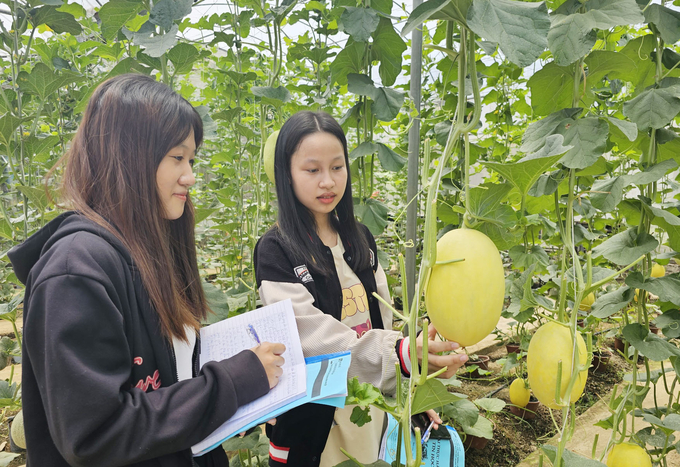
The practical hours will equip students with the knowledge needed to apply it directly to their work after graduation. Photo: Tam Phung.
The key priorities for implementation include promoting entrepreneurship and fostering innovation within educational institutions, creating a highly skilled and knowledgeable professional farmer workforce, and developing a strong team of experts and scientists with the ability to conduct advanced research and transfer modern technologies. It is essential to encourage research that is closely linked with key national scientific and technological programs, while also finding ways to increase revenue from research outputs and technology transfer activities.
Furthermore, there should be a concerted effort to strengthen cooperation in both domestic and international training, especially among universities and colleges under the Ministry of Agriculture and Rural Development, in order to build a strong pool of future managerial leaders. Equally important is the investment in infrastructure for education, training, and research, which will be crucial to support the sector's growth and development goals for the period 2026 - 2030.
The discussions and papers presented at the conference provided a comprehensive evaluation of the progress made in training initiatives during the 2022-2024 period. They identified the challenges and shortcomings encountered, examined their underlying causes, and proposed actionable solutions for improving and innovating the training systems moving forward. These insights will lay the groundwork for shaping the future direction of human resource development, particularly in the context of supporting the agriculture sector and rural development, as well as ensuring the effective implementation of Resolution No. 29 from the 8th Plenary Session of the 11th Central Committee, on fundamental and comprehensive reform in education and training.
The suggestions and recommendations made during the conference will be consolidated into a detailed report, which will be presented at the next conference scheduled for 2026. This report will aim to offer concrete and practical solutions tailored to enhancing the training programs within the agriculture and rural development sectors.
Translated by Phuong Linh
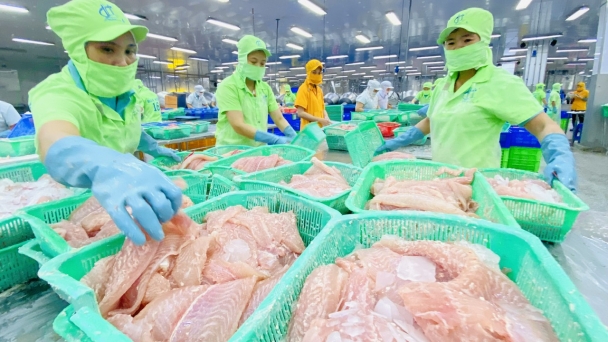
(VAN) VASEP determined that Vietnam's seafood export opportunities to China in 2025 would continue to be substantial as a result of China's robust consumption demands.
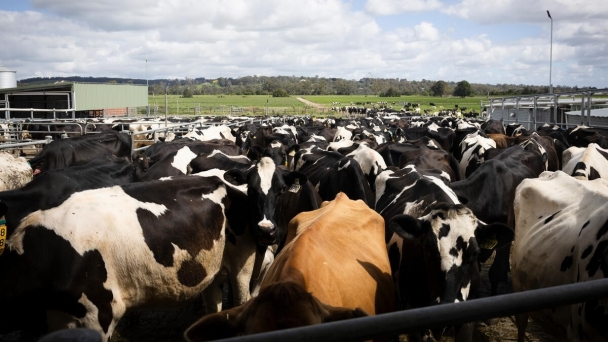
(VAN) It offers advice on how to optimize monitoring and risk mitigation as infections of pathogenic H5N1 strain spread.
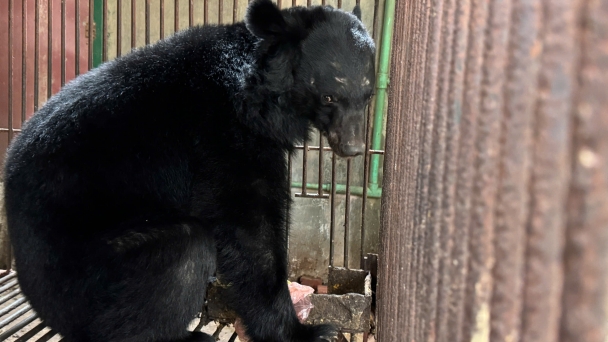
(VAN) Animals Asia, in coordination with the Lao Cai Forest Protection Department, received a moon bear that was illegally kept in Bao Thang district, Lao Cai province.
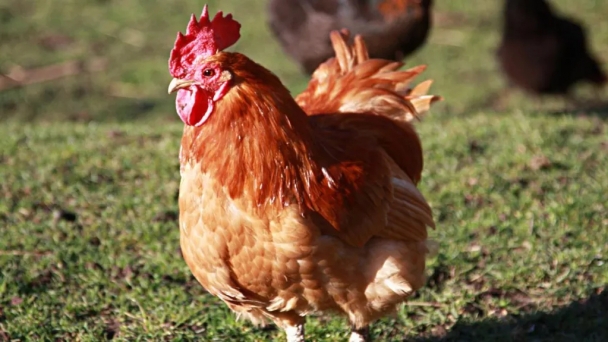
(VAN)All poultry and other captive birds in parts of Yorkshire and the East of England will have to be kept indoors from 23 December to prevent the spread of bird flu, the government has said.
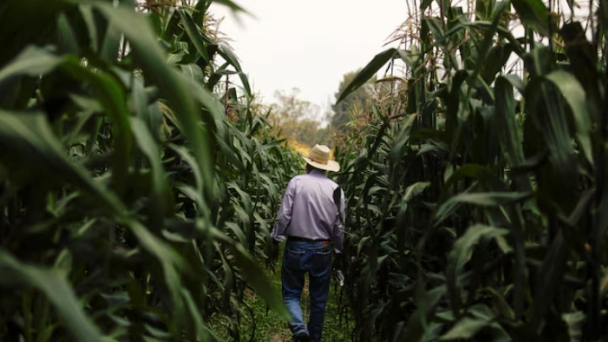
(VAN) Mexican President Claudia Sheinbaum expects Congress to approve a ban early next year on planting genetically modified corn in the country, she said on Saturday.

(VAN) Lam Son Sugarcane JSC partners with other enterprises to launch a carbon-emission reduction project.
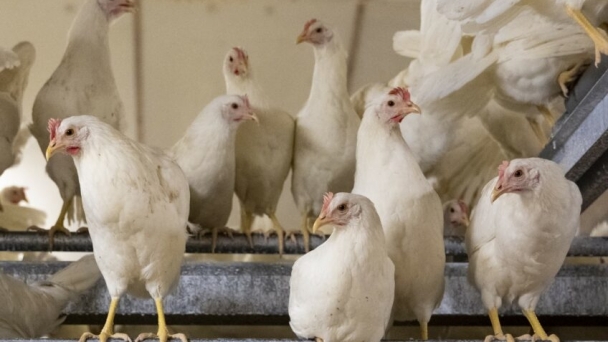
(VAN) Award-winning farmers were given the opportunity to showcase innovation, flock welfare, traceability and sustainability during the first farm tour for UK cross-party MPs.